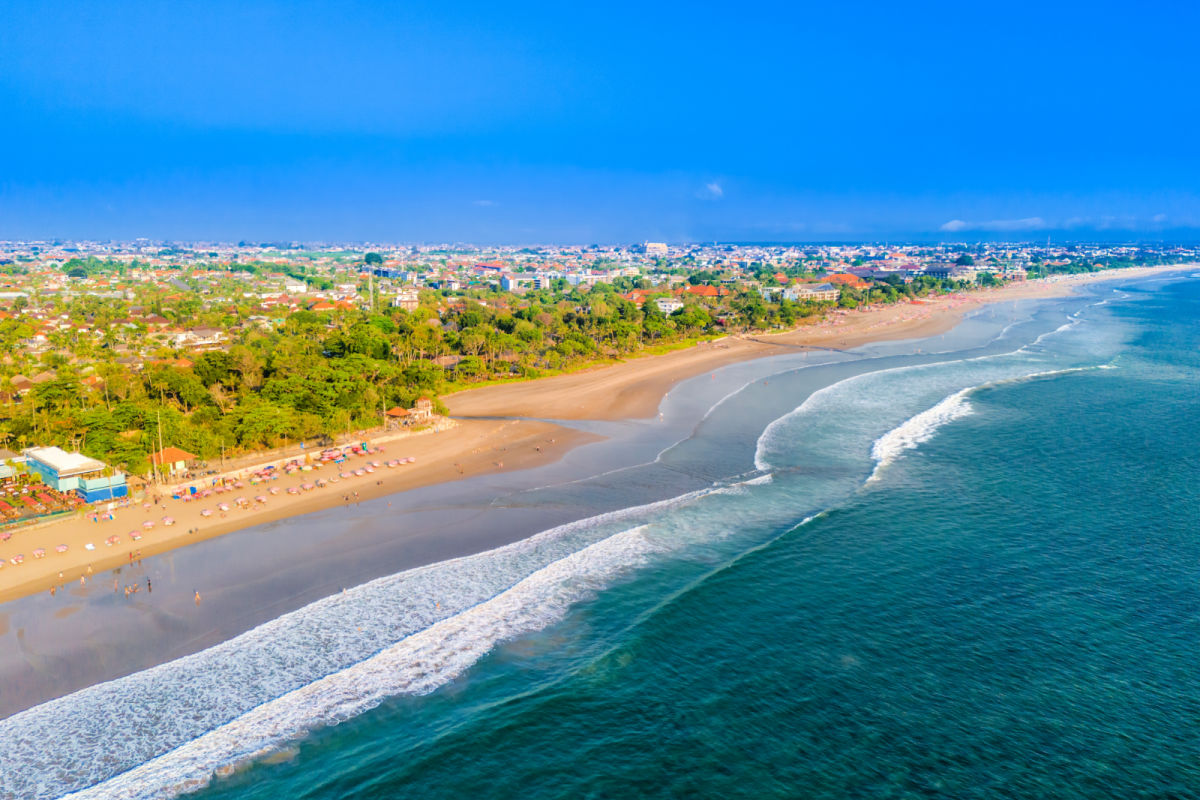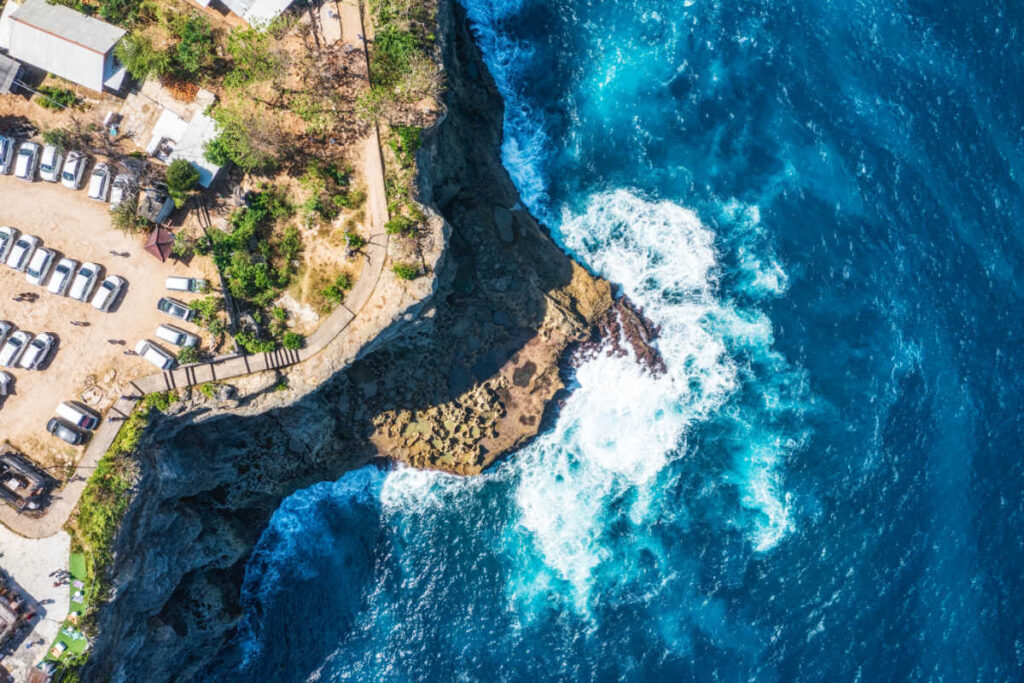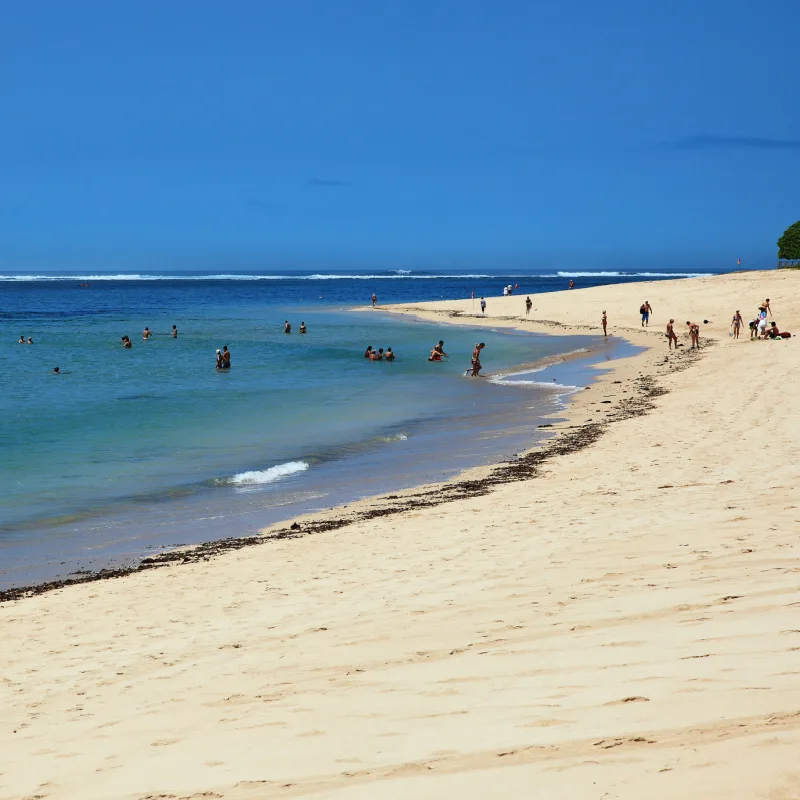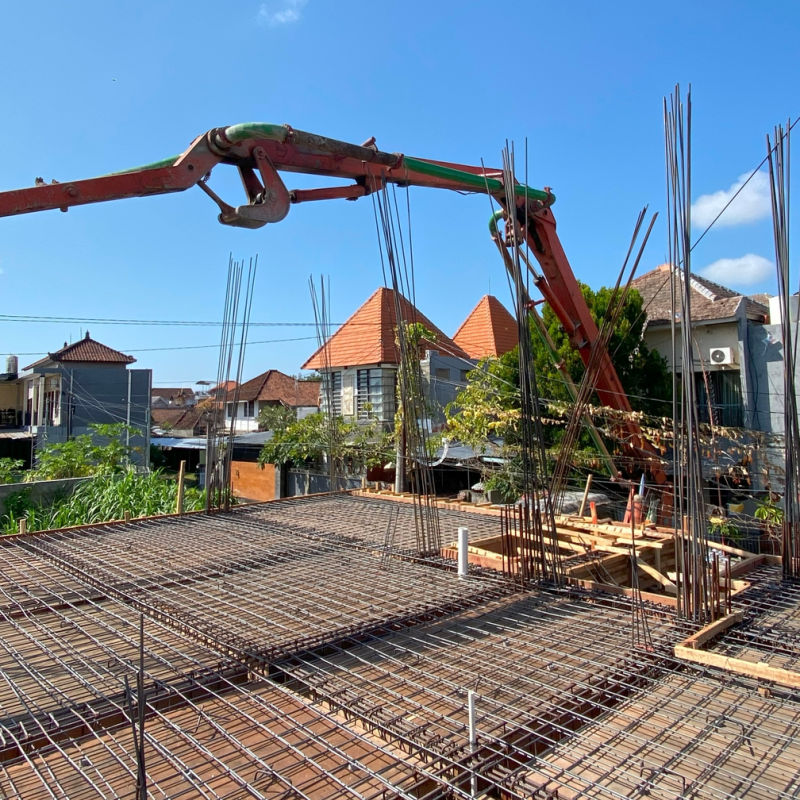Bali’s coastline is shrinking, and Bali’s rice paddies and agricultural landscapes are shrinking, too.
As these irreversible changes become more apparent, academics, political figures, and community leaders are calling for better management of the landscape.

Speaking to reporters, Dr. Hayati Sari Hasibuan, ST, MT, a lecturer at the School of Environmental Sciences at the University of Indonesia, outlined how Bali Province must urgently address how tourism development is allowed to go ahead.
He cited recent environmental disasters in Europe as a foretelling of what could happen in Bali if urgent action is not taken.
Dr Hasibuan explained, “If extreme weather like in Valencia occurs, it is indeed difficult to anticipate; no matter how good the city planning is, the city will be affected.”
“However, if the weather is normal, which has happened continuously and repeatedly, the Bali tourism area must be protected from the rising sea levels that have occurred. Because beach tourism is one of Bali’s strengths.”
Research published in the Regional Studies in Marine Science Journal in May 2024 shows that in data gathered and analyzed by science from Indonesia, Japan, and Turkey, Bali’s coastline has decreased to 662.59 kilometers from 668.64 km between 2016 and 2021, with an average of -1.21 meters per year.
This is one of the major reasons why communities and environmental leaders are calling on both the provincial and central governments not to sell off any more permits for the building of beachfront resorts, villas, hotels, beach clubs, or entertainment venues.
A moratorium is being drafted that would see a ban on tourism development in Badung Regency, Gianyar Regency, Tabanan Regency, and Denpasar City for two years.
This would mean no new hotels or tourism venues in almost all of Bali’s top destinations, including Canggu, Seminyak, Legian, Kuta, Jimbaran, Nusa Dua, Sanur, Uluwatu and Ubud.
Leaders are also calling for the moratorium to include the outlying island of Nusa Penida.
When asked what more could be done to help conserve Bali’s disappearing coastlines, Dr Hasibuan explained that “it could be done, namely by maintaining the natural buffer, which is the mangrove forest. Mangrove forests must be maintained. In addition, the government must be firm; in this case, the Bali government must not issue building permits carelessly.”
“Other countries, such as Japan and Hong Kong, have implemented a radius of distance from the beach for human activities. In Kuta, we see that at the end of the beach, there are motorbikes and people, so it is very dangerous, as well as hotels and beach clubs.”
He also explained that proper management of both the tourism sector and the environment must be implemented to ensure that the coastlines of Bali are protected, that tourism businesses can thrive, and that tourists can have a safe and enjoyable stay.

Dr Hasibuan explained, “In addition to security, the implementation of the radius distance from the beach to the building is also for residents and tourists, as well as public space access. The beach is not private property, so everyone must have access to it.”
“The government, especially the government in Bali, makes a rule of thumb so that this public space can still be accessed.”

He concluded, “the Bali government must implement the number of visits adjusted to capacity. So far, visits have been [a free-for-all] because the thinking is profit, but not accompanied by calculations of the potential for greater dangers that could arise. It is not certain that many people come, but the income is also high.”

The moratorium on tourism development was due to come into effect in October but has been delayed, likely due to the change of government.
The policy still looks likely to come into effect by the end of the year. The ban will not stop hotels, resorts, and residential complexes that are already under construction but will prevent new permits from being granted.
Politicians have also expressed a desire to see the process for foreigners to apply for business permits in Bali made more difficult and for potential loopholes to be closed.
Remove All Ads & Unlock All Articles… Sign up for The Bali Sun Premium

Plan Your Bali Holiday:
Book The Best English Speaking Drivers For Airport Transfers & Tours
Choose From Thousands of Bali Hotels, Resorts, and Hostels with Free Cancellation On Most Properties
Book Cheap Flights To Bali
Don’t Forget Travel Insurance That Covers Medical Expenses In Bali
For the latest Bali News & Debate Join our Facebook Community
SUBSCRIBE TO NEW POSTS
Enter your email address to subscribe to The Bali Sun’s latest breaking news, straight to your inbox.
Discover more from The Bali Sun
Subscribe to get the latest posts sent to your email.

Sven
Wednesday 11th of December 2024
Bali is a failed state. And it's only getting worse. Choices were made and now it's time for consequences.
James
Wednesday 11th of December 2024
There is also the argument of just excepting change, and ride the wave in a good way. For example, when you just implement nature- and conservation-minded rules that come with the land, Bali would become better by actually leasing out land. Most beaches that are untouched, are in terrible shape. So go ahead, built a resort, not Macau or Vegas style, but classic tropical Bali style, with 50% of the land reserved for greenery. And yes, let people enjoy the beach, but enforce to hire a team to keep it clean at all times, and ban jetski's but support the rebuilding of thriving coral reefs.
Untouched usually means illigal fishing and piles of trash. Therefore, use this change to become better.
Exp
Thursday 12th of December 2024
@James, "Bali would become better by actually leasing out (beach) land."
Too late. They have probably sold off everything to the Javanese.
The extreme land prices encourage building wall to wall, so no more water catchment, drainage or green spaces, while sewage seeping into the groundwater table that is getting lower by the day.
Thommo
Tuesday 10th of December 2024
Nothing will stop unhinged flawed development in Bali. Confused patterns of inept unaccountable governance with no control or regulated registration process can control it. Add systemic and endemic corruption and it's a recipe for disastrous consequences as we are witnessing. When the big beach clubs get prime land and develop without following supposed regulations and development process then sort out this process after construction and opening like cancers across the coast what hope is there. Controlling development discussion has been around for years monger academics and politicians and is pure delusion. They talk the talk or seek publicity to justify election/position but nobody makes the walk. Basket case.
Exp
Tuesday 10th of December 2024
"Dr Hasibuan; the Bali government must not issue building permits carelessly."
There seems to be no community responsibility anymore; permits are handed out as the cash must keep flowing. And if permits are missing nothing is actually taken down; just more expensive permits. What a joke of a system.
Example: A beach club in Canggu apparently build a bamboo structure long time ago without permit basically located on the beach. I'm quite sure the structure will be left standing after permits are "approved".